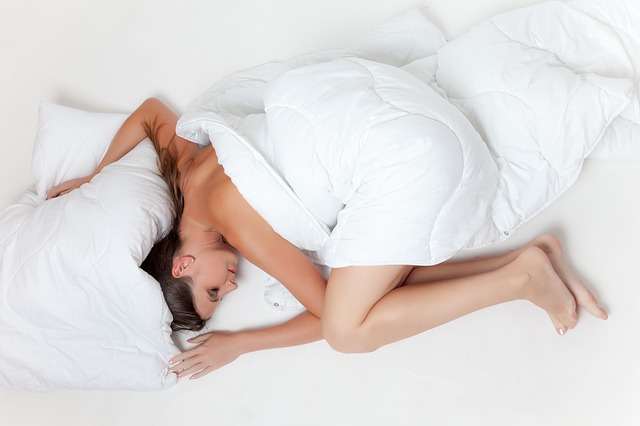There are only two things that really matter in life, your health and your happiness. If I could tell you there was one thing you could do to dramatically improve both of these, that it was completely and utterly free and you could do it while lying down, you’d probably call me mad.
Well, there is – it’s called sleep.
We all know instinctively that sleep is good for our health. When we have a good night’s rest we bound out of bed and feel like we can take on anything.
On the other hand, waking up after a restless night, it can feel like a olympic struggle just to open the curtains and face the world.
Yet despite the fact we all know how good for us sleep is, very few of us actually get the required amount. Sleep disorders are growing at an unprecedented rate.
Recently the Centre for Disease Control declared the prevalence of sleep disorders to constitute a public health epidemic. Yikes!
Read on and I’ll dig a little deeper into exactly why sleep is so incredibly beneficial for our health and happiness.
Sleep Is Natural Prozac
A good night’s rest is far better for our mental health than a handful of the most powerful antidepressants will ever be.
I’m sure you’ve heard the saying, “things will look better in the morning”. Well, rather than being empty words, there is a hell of a lot of wisdom in that old adage.
Studies have shown that individuals who sleep better are more positive and more optimistic.
There are countless reasons for this, many of which involved how the body regulates hormones. Something it does so very efficiently while we sleep, but so well while we’re awake.
Take cortisol for instance, the bad boy of the endocrine system, also known as the ‘stress hormone’. Sleep helps the body flush excess levels of hormone from our system, replacing it instead with lovely joy-enhancing serotonin.
You may have heard of serotonin, it’s the second S, in SSRIs (selective serotonin reuptake inhibitors), otherwise known as antidepressants.
Yep, sleep is a natural antidepressant. I think it’s time to take bedtime a little more seriously, don’t you? Investing in a more comfortable sleeping surface might be a good place to start.
Sleep Helps Us Control Mood
Come on a journey with me now, deep down into the middle of your brain’s frontal temporal lobe. Nestled all snug in there is a small almond-shaped collection of nuclei.
Whilst small in stature this little chap has a lot to say when it comes to your mood. Say hello to your amygdala.
The amygdala is often referred to as the emotional control centre of the brain. It’s the thing that responds to external stimuli and tells us whether we should be happy, sad, laugh, cry, etc.
Research has found that how the amygdala reacts to certain events is exceptionally influenced by how much sleep you’ve had. In fact it’s thought it could be upto 60% more reactive to negative external stimuli after a bad night’s rest.
This is why when you’ve slept badly your prone to irritability and mood swings. And the link between the amygdala and mental health doesn’t end there.
A whole series of conditions such as phobias, autism, anxiety and depression are thought to be linked to a misfiring of the amygdala.
This abnormal functioning may be due to congenital problems, damage or neurotransmitter imbalances. The last of which can be linked to sleep, or a lack thereof.
Sleep & Physical Health
Sleep has been referred to as the single greatest natural performance enhancer known to humankind.
Well-rested we are just about better at every single thing we do, we are more accurate, better at decision making, our memory is better, we are even more attractive. Yep, well it is called getting our ‘beauty sleep’ after all.
The benefits don’t just end there. There is a mountain of evidence that links good sleep and good health. The best way to illustrate this is to flip the premise around and look at all the conditions that are made worse by just missing an hour or so sleep a night.
Poor sleepers are more likely to be obese, develop diabetes, succumb to heart disease, suffer a heart attack, be diagnosed with cancer and even contract Alzheimer’s disease. And that’s just the tip of the iceberg.
There is almost no known health condition that poor sleep doesn’t contribute to negatively.
Final Thoughts
So many of us today are on a quest to find greater happiness and health. We spend a fortune on medicines, therapies and retreats, yet too many of us overlook the easiest win of all. Sleep.
Nothing on this planet will have a more beneficial impact on your health and well being than improving how well you sleep at night. Time for bed methinks?






